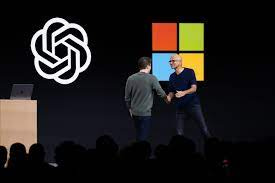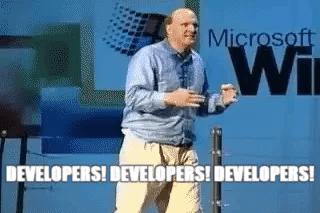AI: OpenAI, Whatever will it be?
...the trajectories for AI's tip of the spear
OpenAI, the tip of the AI spear is in motion. A day after OpenAI’s DevDay (video here), likely the most anticipated developer conference in silicon valley in years, the implications of their announcements are still being digested the world over. The Information took advantage of the opportunity for an attention-optimizing headline “OpenAI’s ‘Extinction Event’ for other AI Startups”:
“Despite Elon Musk’s attempts to steal the spotlight, the AI community gave its undivided attention on Monday to OpenAI’s first-ever live event for developers and the press.”
“The large-language model developer didn’t announce any mind-blowing research breakthroughs, but several of its product improvements undoubtedly will hurt some smaller, high-profile startups and light a fire under bigger competitors such as Anthropic and Meta Platforms. OpenAI also cut prices and said it would protect customers from copyright claims, filling a glaring gap with some rivals.”
The event also highlighted both the current alignment, and the possible future mis-alignment between OpenAI and its mega-partner Microsoft:
“If you didn’t tune in to the keynote (in which Microsoft CEO Satya Nadella made a fun, if slightly awkward, appearance)”.
“A slightly awkward collaboration between Altman and Microsoft’s Nadella at the presentation mirrored the strong yet strained relationship between their companies, which compete against each other on more than one front despite their financial and product ties.”
As I outlined yesterday, the company’s initiatives ranging from making ‘GPTs’ available to millions, to a ‘GPT Store’, to ‘Assistant APIs’, and robust enterprise grade APIs to access it all at ever lower prices, make OpenAI seem like a future fusion of the current business models of Microsoft’s software and application platforms, and Apple’s trillion dollar iPhone ‘App Store’.
As venerable tech analyst Ben Thompson put it in his post-conference analysis of the ‘OpenAI Keynote’,
“While this may have been OpenAI’s first developer conference, I remain unconvinced that OpenAI is going to ever be a true developer-focused company. I think that was Altman’s plan, but reality in the form of ChatGPT intervened:”
“ChatGPT is the most important consumer-facing product since the iPhone, making OpenAI The Accidental Consumer Tech Company. That, by extension, means that integration will continue to matter more than modularization, which is great for Microsoft’s compute stack and maybe less exciting for developers.”
If the company’s future is less being a ‘true developer-focused company’, like Microsoft and Apple, then the closer future trajectory of OpenAI maybe being more of a Google like destination, both directly via services like ChatGPT, ChatGPT Plus and more. And indirectly via enterprise-scale APIs to it widening array of foundation and ancillary multimodal LLM AI technologies built around GPT.
Much like Google got built around the seeds of the Pagerank algorithm in 1998. Not necessarily displacing Google Search, but creating a different, source for human creativity, reasoning, and augmentation, than Google continues to be today.
Building the next leg of AI software computing on top of traditional software computing. Probabilistic computations leveraged by symbolic computations at unimaginable scale, looping in ‘reinforcement learning curves’ around every human activity.
And it’s been barely a year since the ‘ChatGPT moment’.OpenAI’s first-ever DevDay certainly has developers, entrepreneurs, and investors the world over, thinking and re-thinking what could be around AI.
Que Sera Sera indeed, whatever will it be, it be. The future for now, is not ours to see, to paraphrase that famous song.
But OpenAI, the current tip of the AI Tech Wave spear’, is on a powerful initial trajectory indeed. Stay tuned.
(NOTE: The discussions here are for information purposes only, and not meant as investment advice at any time. Thanks for joining us here)






